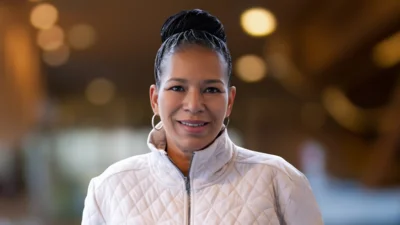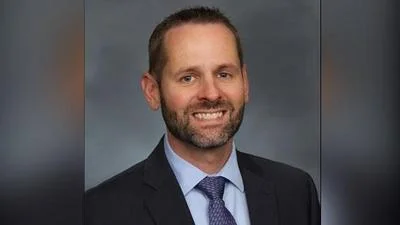University of Phoenix issued the following announcement on Oct. 12
At a glance
- Mental health counselors treat clients with a variety of conditions, including anxiety, depression, grief and relationship problems.
- The demand for mental health counselors is high. The U.S. Bureau of Labor Statistics (BLS) predicts 23% job growth between 2020 and 2030.
- As the stigma around mental healthcare lessens, the demand for mental health services may continue to increase.
- One in five Americans experience mental illness in any given year, according to the National Alliance on Mental Illness.
According to the American Counseling Association, counseling is a collaborative effort between a counselor and client(s) that aims to:
- identify goals and potential solutions to problems that cause emotional turmoil
- improve communication and coping skills
- strengthen self-esteem
- promote behavior change and optimal mental health
If you would like to help others as a counselor, you’ll need a mix of soft skills and clinical assessment abilities. According to Indeed.com, skills that a counselor should have include:
- Active listening (eye contact, facial expressions, gestures, etc.)
- Questioning (skill in questioning techniques)
- Note-taking (recording important points for further analysis)
- Interpretation (placing vague information into context)
- Nonverbal communication (identifying attitudes and feelings based on body language)
- Self-awareness (awareness of how body language, gestures and tone affect clients)
- Trustworthiness (building and maintaining trust)
- Empathy (seeing a client’s situation for their perspective)
- Emotional compartmentalization (maintaining professional boundaries)
- Information recall (remembering information from previous sessions)
- Confidentiality (respecting the privacy of information clients share)
- Record-keeping (maintaining detailed records and session notes)
Right about now you might be asking, “So, what can I do with a master’s in counseling?” Or perhaps your heart is racing because a counseling program sounds like the right fit for you. Either way, read on.
What is a master’s in counseling degree?
To be a mental health counselor, you’ll need to earn master’s degree in counseling and meet the requirements for licensure in the state where you want to practice.
At University of Phoenix, a Master of Science in Counseling/Clinical Mental Health Counseling (MSC/CCMH) is a 60-credit, online program and can be completed in three to four years, including practicum and internship requirements. Students in the Phoenix area also have the option to complete an accredited, campus-based version of this program. (The Phoenix, Ariz., campus counseling program is accredited by the Council for Accreditation of Counseling and Related Educational Programs (CACREP)).
In addition to core classes, counseling program students attend three residencies with online and in-person components that are designed to develop their counseling skill sets. Students also gain hands-on working experience through required clinical placements.
Licensing requirements vary by state, so be sure to review the state licensure requirements in the state where you wish to practice.
Job outlook for mental health counselors
Job growth for mental health counselors is expected to be 23% between 2020 and 2030, according to BLS. This is much more robust growth than the projected national average growth rate of 8% for all professions.
Christina Neider, EdD, Dean of the College of Social and Behavioral Sciences at University of Phoenix says several interrelated factors may be driving this trend. “The pandemic definitely heightened the need for access to mental health care. Meanwhile, the stigma around mental health care is [declining]. You see athletes talking about it openly. A whole-person concept is becoming more of a topic with healthcare clinicians,” Dr. Neider says.
This adds up to increased demand for skillful mental health counselors.
What jobs can I get with a master’s in counseling?
With the jobs outlook pointing in such a positive direction, you might be wondering about the kinds of careers you could pursue once you earn a master’s degree in counseling.
According to U.S. Department of Labor figures cited by the American Counseling Association, more than 665,500 counselors work with patients ranging in age from children to seniors in agencies, organizations, private practice, personal and healthcare delivery systems and other settings.
According to O*Net, the national primary source of occupation information developed under the sponsorship of the Department of Labor, reported job titles for mental health counselors include behavior analyst, mental health counselor, correctional counselor and case manager.
What would it look like to be a master’s level counselor, specifically? Average salary, education requirements and job outlook are highlighted below.
Mental Health Counselor
Overview: Mental health counselors treat clients with a variety of conditions, including anxiety, depression, grief, low self-esteem, stress and suicidal impulses. They also help with emotional health issues and relationship problems.
National Median Salary: $47,660 in May 2020 for substance abuse, behavioral disorder and mental health counselors, according to BLS.
Education Requirements: A master’s degree and an internship is typically required, according to BLS.
Job Outlook: 23% between 2020 and 2030, according to BLS.
Where to get a master’s in counseling
The MSC/CCMH program at University of Phoenix is designed to prepare competent professional counselors who will contribute as leaders in the field of mental health. Earning your MSC/CCMH at University of Phoenix has distinct advantages. These include:
- Experienced Faculty. Full-time faculty with a high level of expertise in counseling and supervision teach in the program. This is a hallmark of programs that are accredited or potentially eligible for accreditation.
- The MSC/CCMH online program curriculum aligns to CACREP standards.
- Students take one class at a time and can attend online whenever it fits their lives — day or night.
- The MSC/CCMH program is offered in most states. Check availability in your region.
- The latest version of the MSC/CCMH program includes telehealth curriculum — a pandemic-related access feature important to both students and the clients they serve.
- Class lecture
- Assigned readings
- Role-plays
- Small, in-class group work
- Discussion
- Small group collaborative presentations
- Small group and independent research
At University of Phoenix, students learn from practitioner faculty with deep experience in clinical practice and supervision. That means, in other words, that students learn from those who are
active in the field.
Studying mental health counseling may be the first step on a rewarding professional journey, and the Master of Science in Counseling/Clinical Mental Health Counseling from University of Phoenix offers an ideal pathway to putting theory into practice.
Original source can be found here.





 Alerts Sign-up
Alerts Sign-up